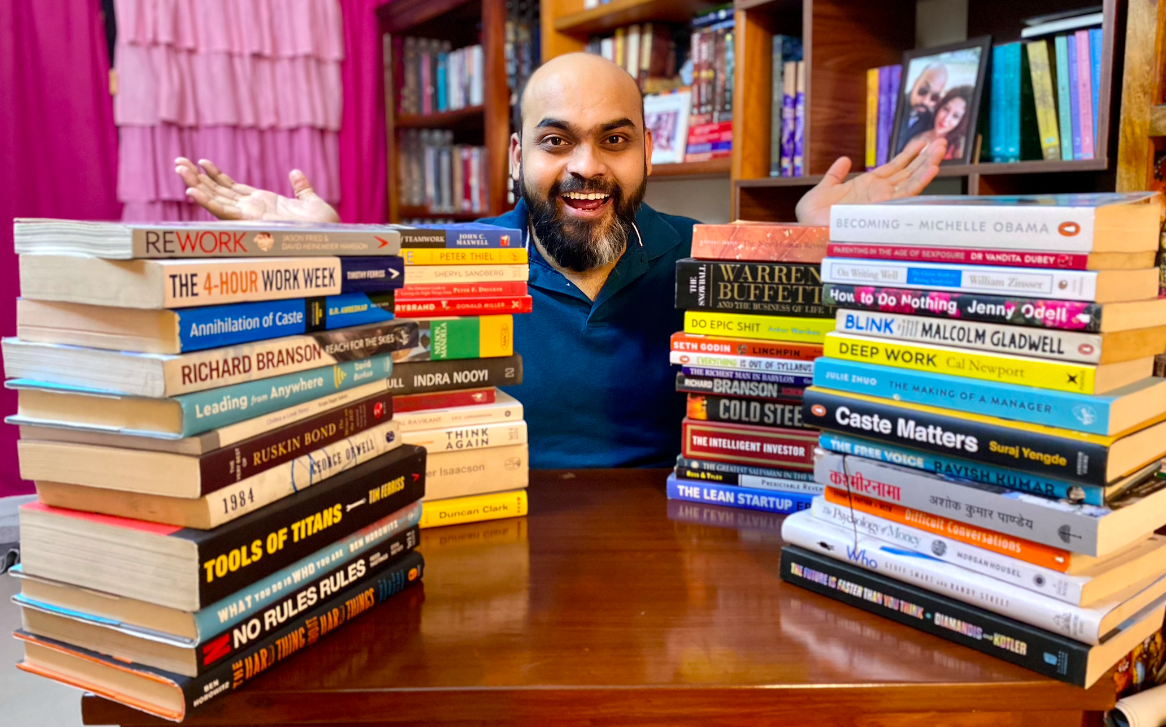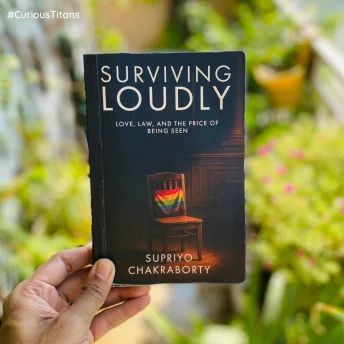My Top 10 Books of 2021
Listing out the top 10 books of the 54 books (and many comics) I have read this year. These books are in alphabetical order. I have learned a lot from each of them. I hope this list will help you pick some of your next reads.
1. Being Mortal – Atul Gawande
Atul Gawande’s book Being Mortal reminds us that the advances in medical science has prepared us for extended life but not for aging and death. As a renowned surgeon himself, he accepts the limits of medicines when confronted with his father’s failing health.
Gawande shares his profound insights on how each of us can approach the concept of mortality. In the face of the inevitability of death, he argues that there are better ways to embrace it.
Being Mortal takes a sharp look at the impact of using all available means to keep people alive, on someone’s final days.
Key learnings from this book:
-
Quality of life is more important than the extension of life.
-
Think and talk about our own mortality before it’s too late.
-
When supporting terminally ill or aging loved ones, have conversations about their end-of-life wishes.
Before someone takes medical decisions on my behalf, I hope they ask me about the things I want to be left with and the things that really matter.
2. Can’t hurt me – David Goggins
“Can’t hurt me” is David Goggins autobiography of his transformation from an overweight and depressed young man to a Navy SEAL and world-class ultra-endurance athlete.
In his book, David narrates his experiments with self-discipline and how he constantly mastered his mind with remarkable dedication despite his traumatic upbringing. His account of creating a world record for the most pull-ups, completing 4,030 in 17 hours is fascinating.
Through his story, he shares key lessons on accountability, goal setting, and overcoming setbacks. One of the most motivational autobiographies I have read.
3. Man’s search for meaning – Victor E. Frankl
A story of Viktor Frankl’s struggle to hold on to hope during the unspeakable horrors of his years in Nazi concentration camps, including Auschwitz. Having lost his parents, brother, and pregnant wife, Frankl argues that we cannot avoid suffering; however, we can choose how to cope with it, find meaning in it, and move forward with renewed purpose.
Today when many lost their loved ones, Frankl’s memoir, ‘Man’s Search for Meaning’ can help cope with the suffering through his remarkable perspective on the psychology of survival.
Frankl says “the will to meaning” is the basic motivation for human life. This view has forever changed the way we understand our humanity in the face of suffering.
As a result of his experiences, Dr. Frankl later developed a revolutionary approach to psychotherapy known as logotherapy.
4. No Rule Rules: Netflix and the culture of reinvention – Reed Hasting & Erin Meyer
A billboard by Netflix in LA has been making rounds on social media. It reads, “Don’t give up on your dreams. We started with DVDs,”. Yet again highlighting the unique approach of Netflix in all aspects.
A billboard by Netflix in LA
Erin Meyer and Reed Hastings, the founder of Netflix, in their book, “No Rules Rules”, shares the corporate philosophy and management principles behind building a culture of innovation at Netflix. The story of creating a subtle and balanced culture of Freedom and Responsibility is fascinating.
A must-read for anyone who is or wants to build an innovative and dynamic team at scale. The book offered me many tools and learnings to implement at Nickelfox.
Key learnings
-
Consider everyone you are working with as a part of your dream team and act accordingly.
-
Take time learning to give and receive feedback.
-
Instead of creating a culture of process adherence, try creating a culture of freedom and responsibility.
5. Start with why – Simon Sinek
‘There are leaders and there are those who Lead’, that’s how this book begins. I came across this eye-opening book by Simon Sinek and the concept of The Golden Circle many years ago. And from the title I assumed I know what this guy will be talking about, only to be proven wrong. I started reading the book only after seeing many references to it, with a feeling of missing out. Nonetheless, one of the best books I have ever read.
Start With Why focuses on ‘WHY individuals and organizations do what they do’. Knowing the purpose behind any action taken, having a clear set of reasons before starting anything – is the key to creating sustainable success. This book has not only added more meaning to everything I do but has also enhanced my ability to clearly communicate the same to people.
No wonder today while giving a presentation to my team, I used some examples mentioned by Simon in his book, once again. A must-read for all, without a doubt.
6. The Almanack of Naval Ravikant: A Guide to Wealth and Happiness – Eric Jorgenson
Naval Ravikant is the founder of AngelList, Epinions, and Vast.com, an angel investor in Twitter, Uber, Yammer, and many more. The world might not have philosophers like Plato, Socrates, Nietzsche but Naval can join the league of philosophers of the modern world.
Eric Jorgenson has compiled Naval’s wisdom from his tweets, essays, podcasts, and interviews for this almanack. This book includes Naval’s thoughts on startups, investing, wealth, happiness, judgment, and his long list of recommended reads.
One of the lines I related with: “When I tell people what I’m reading, I skip two-thirds of my books. The reason I skip two-thirds is because they’re embarrassing. They don’t sound like good books to read. They’ll sound trivial or silly. Who cares? I don’t have to tell everybody everything I read. I read all kinds of stuff other people consider junk or even reprehensible. I read all kinds of stuff I disagree with because they’re mind-bending.”
A great book to read and it’s available for FREE for everyone on
https://www.navalmanack.com/
7. The Psychology of Money – Morgan Housel
In The Psychology of Money, Morgan Housel talks about three interlinked concepts of wealth, greed, and happiness. In the current era of Facebook, Instagram, and high-speed internet we see lives, growth in wealth, careers, and lifestyle of people who in a pre-internet world we would only have a remote idea. We can ideally have separate lessons on these three but understanding their interrelatedness is crucial while dealing with money and how it impacts us psychologically.
My two main takeaways from this book:
-
Save money for the unprepared future and we don’t need a specific reason to save.
-
Knowing what is “Enough” (I feel) is a Super Power: Everyone looks at who is worth more money. The ceiling of social comparison is so high that virtually no one will ever hit it. This means to accept that we might have enough, even if it’s less than those around us.
While there can be many ways/roads on ‘how to become wealthy’, but a simple way to understand Psychology of Money, are Morgan’s writings in this book.
Must read to achieve our own financial goals while not compromising on happiness.
8. Think Again – Adam Grant
In Think Again, Adam Grant with his most convincing arguments urges us to challenge our beliefs. He says “When it comes to our own knowledge and opinions, we often favor feeling right over being right.”
“Think Again” emphasizes that learning shouldn’t lead only to strengthen our pre-existing notions and beliefs, but it should challenge them. “A hallmark of wisdom is knowing when it’s time to abandon some of your most treasured tools, and some of the most cherished parts of your identity.”
He states that scientists love new evidence allowing them to improve or disprove their hypotheses and assumptions. Scientists don’t have ‘attachment’ to their beliefs, they will seek the truth with the rethinking cycle.
Grant highlights this rethinking cycle => intellectual humility -> doubt -> curiosity -> discovery.
This book is about the power of Scientific thinking and operating with a dynamic mindset, definitely a thought-provoking read
9. Tools of Titans – Tim Ferris (Tools of Titans – the tactics, routines, and habits of billionaires, icons, and world-class performers)
This is one of my favorites, I get back to some chapters, again and again, to refresh key learnings, in a manner some of us go back to episodes of F.R.I.E.N.D.S. Tools of Titans is divided into 3 sections Fitness, Money, and Wisdom with each section comprising excerpts of Tim’s interviews and key learnings of the best minds (Billionaires, Icons, and World-class Performers) in recent times. What’s amazing is the way Tim Ferriss gets his guests to speak. Bonus chapters by Tim’s own learnings spread across the whole book.
Highly recommended read as everyone wants to improve on at least one area – be it Health, Wealth, or Wisdom.
10. What you do, is who you are – Ben Horowitz
After his best-selling book for business leaders “Hard things about hard things”, in “Who you are is what you do” Ben Horowitz talks about another crucial subject of creating a culture. He derives lessons from samurais, warriors, revolutions, to modern prison gangs, on how cultures are formed. His own account of the struggle to create a company culture while leading LoudCloud (later acquired by Hewlett-Packard) a cloud services company is fascinating.
He argues who you are, is not the values you list out for your team. It’s not your marketing campaign. It’s not even what you believe. Who you are is what you do, even when you don’t state that explicitly.
This book offers practical advice on how to build cultures, how to set it deep in people’s minds, and how to fix it when things go wrong.
Highly recommended for business leaders committed to building great teams.
#LearningNeverEnds #CuriousTitans #BookRecommendation #ReadMoreBooks






